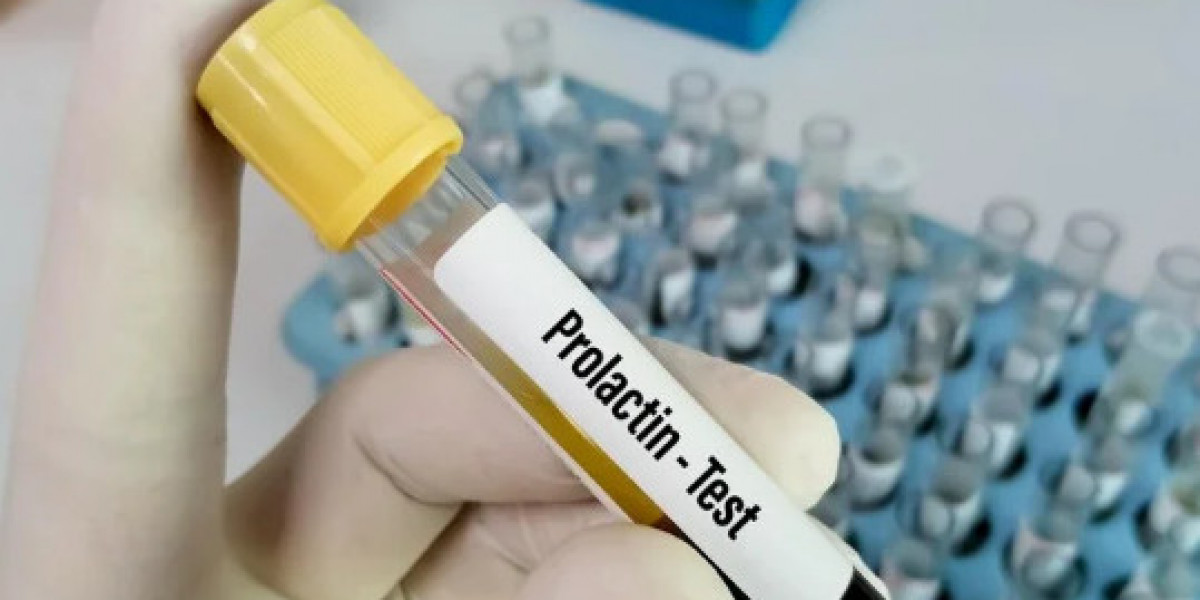Prolactin Testis a hormone produced by the pituitary gland, playing a key role in various functions for both men and women. Most commonly associated with milk production in women after childbirth, prolactin also influences reproductive health, hormonal balance, and even immune function. Understanding prolactin levels and knowing when to get tested is crucial for diagnosing and managing a range of health conditions.
What Are Prolactin Levels?
Prolactin levels refer to the amount of prolactin present in your blood. Normal levels can vary depending on your sex, age, and physiological conditions, such as pregnancy. While prolactin levels naturally fluctuate throughout the day, abnormally high or low levels could indicate underlying health issues that require attention.
Normal Prolactin Levels:
- Women (non-pregnant): 4 to 23 ng/mL.
- Pregnant women: 34 to 386 ng/mL.
- Men: 3 to 15 ng/mL.
When Should You Get Tested for Prolactin Levels?
A prolactin test is typically recommended if you experience symptoms or conditions linked to imbalances in prolactin. Heres when you should consider getting tested:
For Women:
- Irregular Menstrual Cycles: If your periods are irregular or absent, it could be due to elevated prolactin levels interfering with ovulation.
- Infertility: Difficulty conceiving may sometimes be linked to high prolactin levels.
- Unexplained Breast Milk Production (Galactorrhea): Milk production without pregnancy or breastfeeding is a clear sign that your prolactin levels need to be checked.
For Men:
- Erectile Dysfunction or Decreased Libido: High prolactin levels can disrupt testosterone production, affecting sexual health.
- Infertility: Low sperm production or quality may result from elevated prolactin.
- Enlarged Breast Tissue (Gynecomastia): This condition may also point to a prolactin imbalance.
For Both:
- Persistent Headaches or Vision Problems: These could indicate a prolactinoma, a benign tumor of the pituitary gland that causes high prolactin levels.
- Thyroid Issues: Hypothyroidism can lead to increased prolactin levels, making testing essential for proper diagnosis.
- Symptoms of Pituitary Disorders: Fatigue, unexplained weight changes, or other hormonal imbalances might suggest the need for a prolactin test.
What Happens During a Prolactin Test?
A prolactin test involves a simple blood draw, typically performed in the morning when prolactin levels are at their peak. Your doctor may advise fasting or avoiding physical activity before the test to ensure accurate results.
What Do the Test Results Mean?
High Prolactin Levels (Hyperprolactinemia):
Possible Causes:
- Prolactinoma (pituitary gland tumor).
- Hypothyroidism.
- Side effects of medications like antidepressants or antipsychotics.
- Stress or physical exertion.
Symptoms:
- In women: Missed periods, infertility, or galactorrhea.
- In men: Erectile dysfunction, reduced libido, or gynecomastia.
Low Prolactin Levels:
Possible Causes:
- Pituitary gland dysfunction (hypopituitarism).
- Certain underlying medical conditions.
Symptoms:
- In women: Difficulty breastfeeding post-pregnancy.
- In men: Rarely associated with significant symptoms.
Why Is Prolactin Testing Important?
Prolactin testing helps diagnose a variety of conditions, including pituitary gland disorders, hormonal imbalances, and thyroid problems. Early detection enables timely treatment, whether through medication, lifestyle changes, or further medical interventions like imaging studies.
Take Control of Your Health
If youre experiencing symptoms related to hormone imbalances or reproductive health issues, understanding your prolactin levels is an important first step. Discuss your concerns with your doctor to determine whether a prolactin test is right for you.
Remember, early diagnosis and treatment can significantly improve your quality of life and help you achieve better overall health. Dont waitget tested and take charge of your well-being today!










